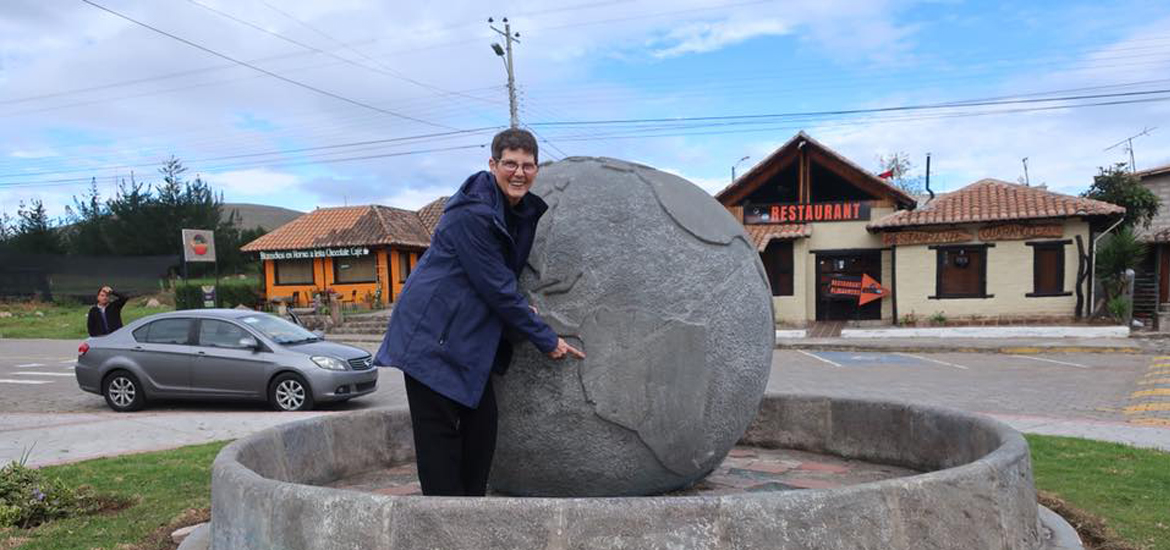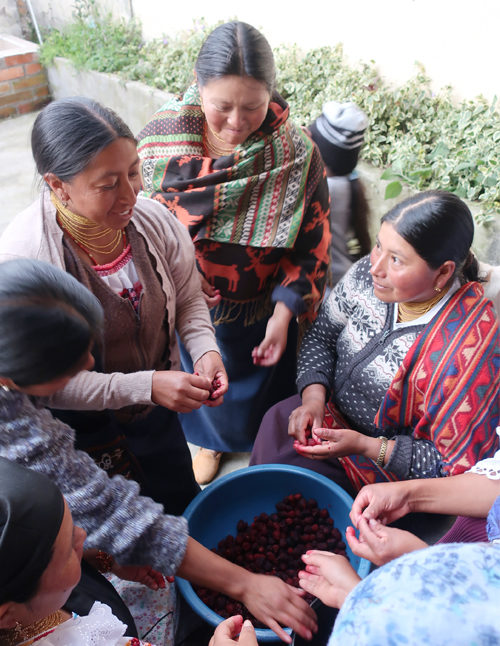
Have Knowledge, Will Travel
Wednesday, August 1, 2018
Barbara Brown shares her food preservation expertise around the world
By Christy Lang
Barbara Brown loves a good challenge. Since 1981, through her work as a family and consumer sciences food specialist at Oklahoma State University, Barbara Brown has shared her knowledge and expertise about food preservation and consumer food issues with Oklahomans and residents around the world.
An associate professor in the College of Human Sciences’ Department of Nutrition Sciences, Brown was selected as a volunteer for different projects sponsored by Partners of the Americas’ Farmer-to-Farmer project.

Brown has trained residents and farmers on food preservation in making jams and jellies, food dehydration and food safety during two to three-week visits in Nicaragua, Haiti, Mozambique and Ecuador.
Each project is different. And Brown has learned to be patient and prepared for anything.
“I try not to have preconceived ideas,” Brown said. “You may go into the country with a general idea of what you’re going to be doing but on the first day that will change. And it will change every day thereafter. You deal with changing wants and needs and have to use what is available.”
Partners of the Americas is a non-profit organization that connects people and organizations to implement programs in Latin America and the Caribbean. Programs span such areas as combating child labor, promoting youth leadership and improving agriculture and food security. Farmer-to-Farmer is funded by USAID.
Each project addresses local needs. In Ecuador, Brown focused on teaching fruit processing and preservations in food-insecure communities. Forty-four people participated in workshops where she taught participants to freeze fruit pulp from strawberries, tree tomatoes and blackberries and to make fruit jam using golden berries and strawberries.
“We didn’t have some of the things I’d generally tell people were essential for good results, like freezer-grade storage bags for frozen pulp,” Brown explained. “They had a lighter-weight product, so we used (what they had) and talked about how that would impact storage time and quality.”
In Mozambique, Brown couldn’t make jams and jellies, so she instead worked to teach and develop ways to dehydrate food. She worked with her students to create a unit for dehydration out of plastic sheeting, cardboard and insect screens. They poked holes for airflow and painted it black to absorb more sun.
The challenge is part of what Brown enjoys most about the work. “That need to think on your feet, listen to what is really important, adapt to locations and situations is very exciting,” she said.
The people she meets and the opportunity to visit new places and experience new things also keep her coming back to Partners of the Americas.
“The people are awesome,” Brown said. “They are beautiful inside and out. They are kind and generous and they give back more than I could possibly give in return."
“They really want to learn, and to apply what they are learning immediately.”
And Brown is happy to teach.
